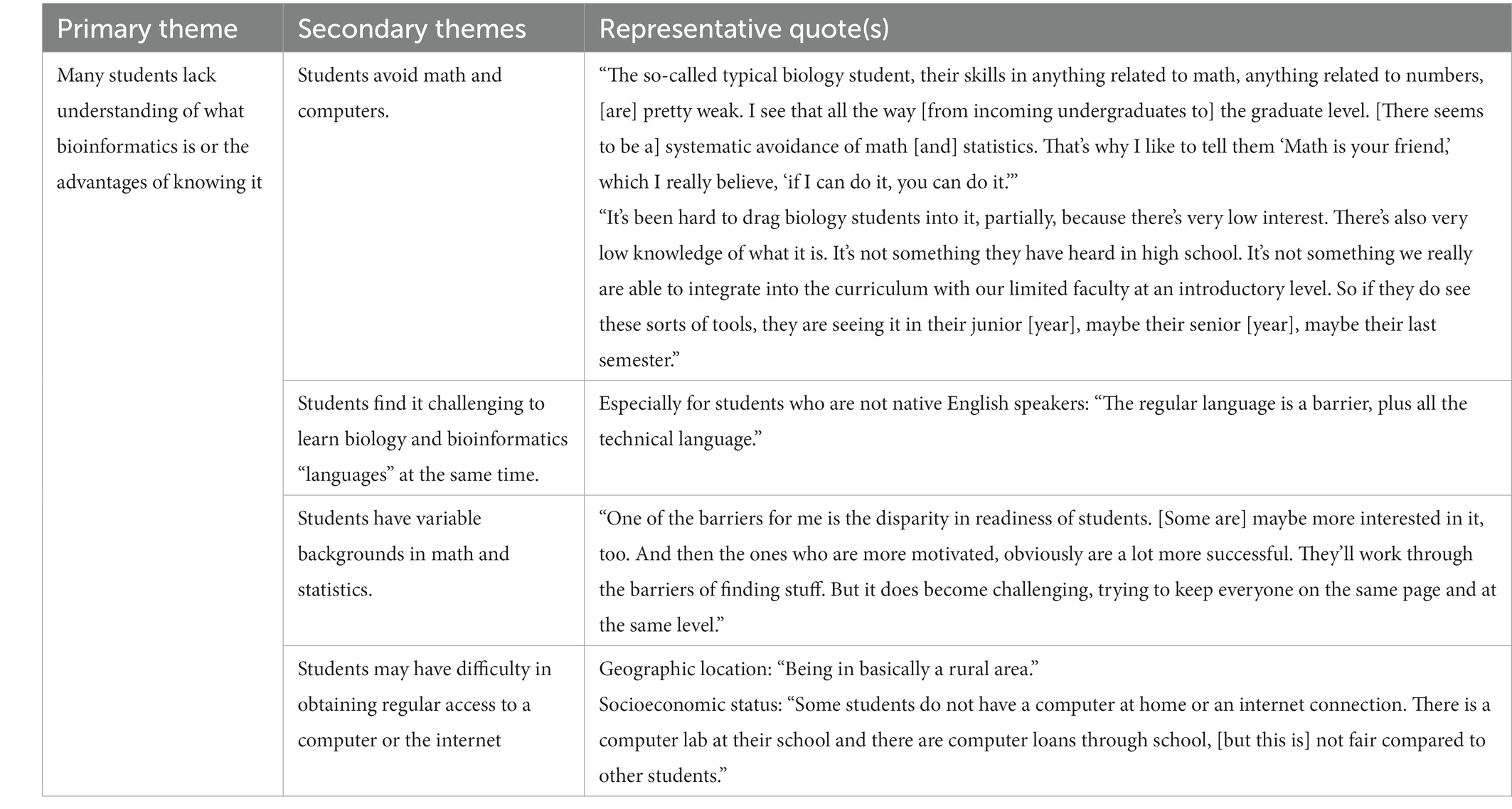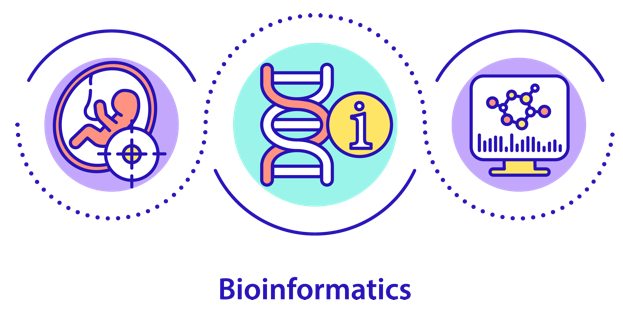Examine This Report about Bioinformatics Tutor
Table of ContentsFascination About Bioinformatics TutorThe Basic Principles Of Bioinformatics Tutor Rumored Buzz on Bioinformatics TutorAn Unbiased View of Bioinformatics TutorThe Facts About Bioinformatics Tutor Revealed
Of the total amount individuals entailed in the training, 80% were trainees from public college institutions, while the staying 20% came from exclusive establishments. To get approved for a certification of engagement, trainees were required to attend at the very least 90% of the complete training hours. As an outcome of this need, a remarkable 95% of the individuals effectively obtained their certifications, having not only met the minimum presence criteria yet likewise completed all appointed activities throughout the training.
Throughout the height of the COVID-19 pandemic, especially in between June and August 2020, the task team was charged with organizing specialized training in bioinformatics. This training was especially focused on pupils from the research study team Nucleus for Research study in Applied Computing at the Federal College of Pará (UFRA) The adaptation to remote discovering systems because of the pandemic created an opportunity to check out brand-new teaching approaches and digital devices that boosted both reach and effectiveness.
To respond to the growing demand in the computing and life sciences areas, an innovative program was presented in 2020 entitled Intro to Machine Understanding. This course was made to give an accessible yet comprehensive overview of Artificial Knowledge techniques, specifically as used in bioinformatics. The program was accomplished over 3 months, from October to December 2020, and was delivered completely online through the Google Meet system. This online format enabled engagement from trainees across Brazil, a lot of whom might not have had the opportunity to attend in-person sessions.
Rumored Buzz on Bioinformatics Tutor
Around 50% of the complete training hours were committed to sensible tasks where students built intelligent models and applications in a range of scientific domains, including genetics, molecular biology, and environmental data evaluation. These systems made it possible for pupils to involve in real-time data control, design training, and algorithm testing.
Sixty of them were affiliated with numerous higher education organizations in the state of Pará, while the staying twenty came from establishments situated in 5 various other Brazilian states. By presenting Artificial Intelligence in a appropriate and useful context, the initiative offered to bridge the void in between theory and real-world application, providing trainees with a solid structure for future research study or employment in the field.
The training effort formed component of a broader scholastic outreach effort referred to as the Bioinformatics on the Road task. This job has, over the years, presented lots of pupils to the world of bioinformatics and computational biology. The occasions held under this umbrella initiative have actually occurred throughout multiple regions and years, as like it summed up in Table 1 (Listing of occasions, places, years, and overall varieties of students and trainers)
Among one of the most remarkable results of the Bioinformatics on the Road initiative has actually been its payment to the growth of decentralized research study teams. Several of these groups, originally united by their involvement in training occasions, have given that gone on to create independent clinical study in partnership with local academic organizations. The training not just fostered scientific reasoning within the context of bioinformatics but also stimulated collective partnerships that extended beyond the training atmosphere. These partnerships have actually brought about enhanced neighborhood scientific efficiency and added meaningfully to the growth of the broader bioinformatics neighborhood in Brazil.
How Bioinformatics Tutor can Save You Time, Stress, and Money.
The very same team, leaving out IH and RR, likewise acted as tutors for the practical training components. Funding for the job was given via the grant 88887.200562/ 2018-00 from CAPES.
The Federal College of Pará's Workplace of Research (PROPESP/UFPA) likewise supplied monetary support, especially for the manufacturing of the last manuscript. The writers declare no economic or business conflicts of rate of interest that could have affected the research. Furthermore, all interpretations and opinions revealed in this write-up are exclusively those of the authors and do not necessarily show those of their particular organizations, the author, editors, or customers associated with the magazine process.

Getting My Bioinformatics Tutor To Work
From a pedagogical perspective, the teaching technique utilized in the training was deliberately interactive. Classes were performed in a manner that urged trainee involvement and discussion, exceeding rote memorization to discover just how concepts are created, used in life, and checked in academic setups. The instructional ideology concentrated on nurturing both solid and struggling pupils, providing individualized support, and structure confidence with sustained mentorship and patience.

Each team, containing around 36 individuals, was supported by three mentors-- the majority of whom were postdoctoral scientists with customized knowledge. These mentors not only assisted design the team projects however additionally facilitated their implementation, making sure that each research study concern was my site both suitably difficult and relevant. The objective was to provide a biologically sensible context that participants might check out via open-ended objectives and access to curated datasets.
For additional insights into the method and end results of this project-based discovering approach, readers are routed to S1 Text, that includes in-depth descriptions of the pedagogical structure, evaluation techniques, and check this site out task styles made use of in the training sessions.
The 4-Minute Rule for Bioinformatics Tutor
Of the total individuals included in the training, 80% were pupils from public higher education establishments, while the continuing to be 20% came from personal institutions. To qualify for a certificate of engagement, pupils were required to attend at least 90% of the complete training hours. Especially, past the pupils that enlisted in the training sessions, seven skilled trainers took part in delivering the courses, while 3 committed research study teachers coordinated the overall training process. Approximately 50% of the total training hours were dedicated to useful activities where trainees developed intelligent versions and applications in an array of clinical domain names, including genes, molecular biology, and environmental data analysis. The training not just cultivated scientific reasoning within the context of bioinformatics however also sparked joint relationships that expanded beyond the training setting.